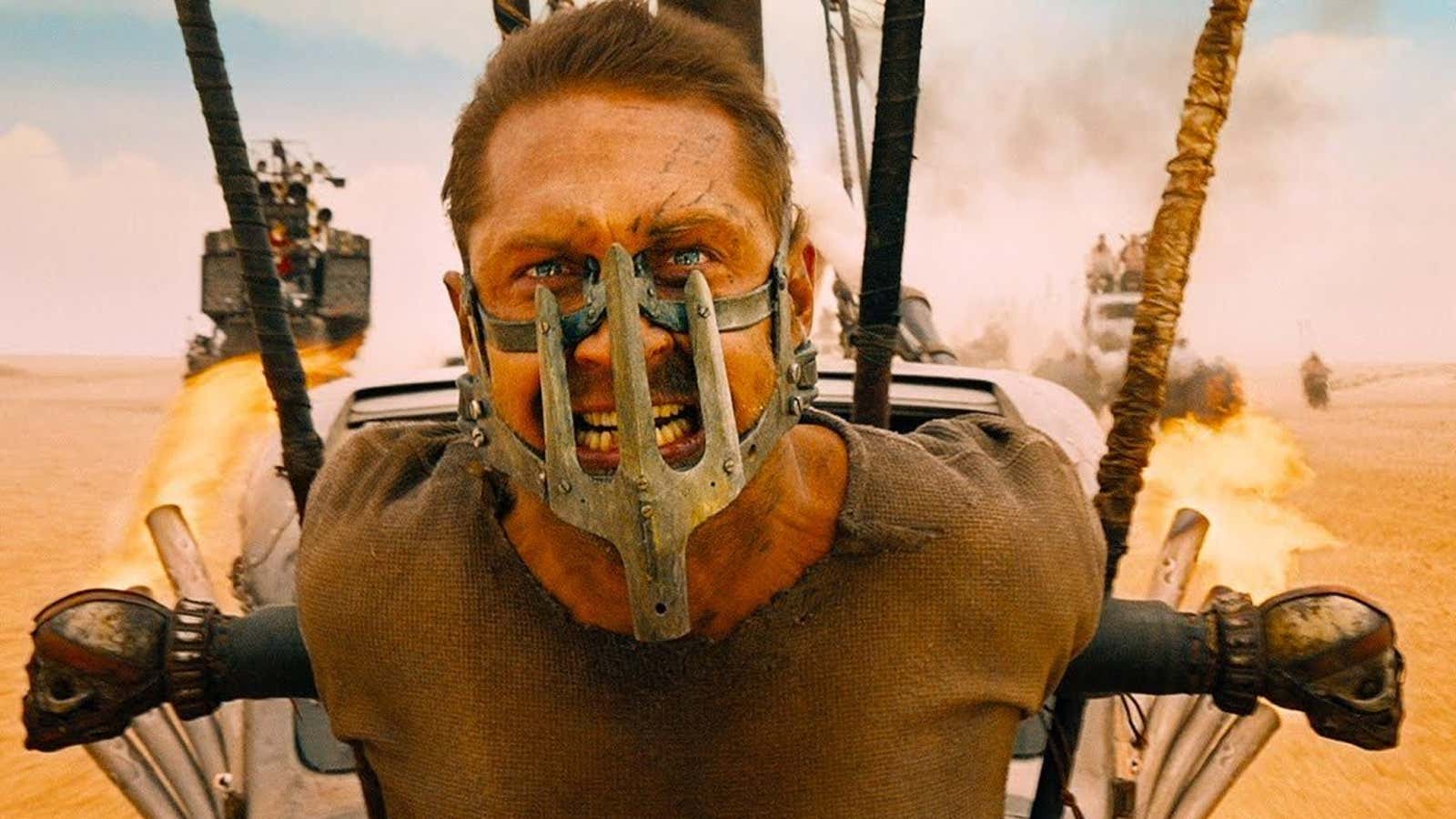A nuclear holocaust, an evil overlord, hordes of crazed War Boys, and a phalanx of high-speed death machines couldn’t stop Mad Max. But a bitter legal battle could.
Mad Max: Fury Road director George Miller and his production company, Kennedy Miller Mitchell, are suing Warner Bros. in Australian court, alleging that the Hollywood studio breached financial agreements from the critically acclaimed 2015 action film, the Sydney Morning Herald reported. Miller’s team claims that Warner Bros. reneged on the payout of a $7 million bonus for producing the film under budget.
Warner Bros., meanwhile, says that the budget actually ballooned well above what had been originally agreed to, and that Miller’s company was at fault for the increased costs.
Miller and Fury Road co-writer Brendan McCarthy have already written two sequel scripts. But the growing rift between the filmmakers and the powerful studio means they may never get filmed. It’s the second major lawsuit Warner Bros. has dealt with in the last few months, after the studio settled a case with an author who said The Conjuring franchise infringed on his rights to tell the famous ghost story.
Fury Road unexpectedly became a massive critical success in 2015, netting a 97% on Rotten Tomatoes and earning several Oscar nominations, including best picture and best director for Miller. Its box office totals were not quite as triumphant, however, as the film grossed only a mediocre $378 globally ($154 million the US) on its hefty $150 million budget.
It’s amazing that Miller managed to make such a beloved film given all its behind-the-scenes production drama, much of which is detailed in the claims, reported by the Sydney Morning Herald.
Miller’s production company alleges that Warner Bros. insisted on new scenes (including a new ending) and requested further edits and re-shoots, which delayed production and necessitated a bigger budget. It claims that Warner Bros. approved an additional $31 million, which Warner Bros. denies: It says it never gave written approval for the increase and that any extra costs were unnecessarily created by the production team.
Kennedy Miller Mitchell was supposed to be given the first opportunity to co-finance the film if it required more money, the company said. In a strange twist, it said that Warner Bros. instead brought in another investment group for a piece of the film without telling Miller’s production company, which didn’t find out until it was ordered to give a producer credit to Steve Mnuchin, a former investment banker and film financier who is now Donald Trump’s treasury secretary.
The lawsuit offers a rare glimpse of the behind-the-scenes tumult that sometimes plagues big-budget Hollywood films. Studios and directors are frequently at odds over just how large film budgets should be, and how they should be allocated.
In this instance, Warner Bros. may be balking at Miller’s demands because Fury Road didn’t turn much of a profit, and any potential sequels to the visually ambitious movie would likely be logistically difficult to shoot. While a second or third film would probably perform better financially, given the first’s critical success, it’s no guarantee of a big profit—especially if budgets keep getting bigger and bigger.
The entire situation is a total shame, since Miller’s Fury Road was one of the rare big-budget Hollywood franchise movies to be both original and deeply compelling. If more of these films don’t get made, everyone loses.
